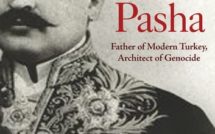

In this section of Campus, EuropeNow features a selection of scholarly articles and books on topics pertinent to the teaching of Europe or teaching in Europe that were published within the last 5 years. This dynamic bibliography, with monthly installments, seeks to highlight both pedagogy research as well as critical analyses of debates taking place in higher education in and about Europe.
If you are interested in reviewing any of the books featured in any of our Campus Round-Ups, please contact our Research and Pedagogy Chair, Hélène Ducros, at helene@alumni.unc.edu
1. “Higher Education Staff and Brexit: Is the UK Losing the Youngest and Brightest from Other EU Countries?”
Since the Brexit referendum in 2016, and the formal act of triggering article 50 by Theresa May’s cabinet in 2017, the UK has entered a period of negotiations, the outcome of which, and also the terms of the post-exiting phase, are still uncertain. In this period of uncertainty, the mobility of people is one of the main issues at stake. The topic is important for the higher education sector where the percentage of (other) European Union staff in UK universities has grown at an impressive rate in recent years before the Brexit referendum. This paper draws from official Higher Education Statistic Agency (HESA) data to investigate if there is any inversion of this trend in the British system, arguing that some ‘Brexodus’ of academic staff–meaning a decrease in the percentage of other EU nationals–has already started for some academics, namely the youngest and the brightest.
Read the full article by Giulio Marini in Tertiary Education and Management
2. “Teaching Assessment and Perceived Quality of Teaching: A Longitudinal Study Among Academics in Three European Countries”
European institutions of higher education have increasingly sought to improve the accountability and transparency of teaching and research with formal procedures and performance criteria. In a longitudinal analysis conducted in faculties of social sciences and economics at universities in the Netherlands, Sweden and the United Kingdom, we examined ways in which academics have experienced the expanded use of teaching assessments and its impact on the perceived quality of teaching. Results revealed that teaching assessments in the three countries have become more institutionalized, as skepticism of their principles have been replaced with resilience and pragmatism in assessment instruments and, among individual instructors, with sharpened focus on the operational side of teaching. Although faculty members acknowledged benefits of teaching assessments, they could not envision how the assessments would improve the quality of teaching. In response, we offer a theoretical explanation of those trends that extends the development of micro-institutional theory.
Read the full article by Christine Teelken in European Journal of Higher Education
3. “The Sensitive Scars of the Second World War in Teaching European History”
In this paper, we analyze the Second World War (WWII) and the Holocaust as genocide during WWII as sensitive topics in history teaching as perceived by 719 teachers from Austria, Belarus, Estonia, Finland, France, Germany, Israel, Italy, Serbia and the Netherlands. Using the thematic content analysis of open answers to an online questionnaire we explore the reasons for the sensitivity of these topics. The reasons for sensitivity were found to lie in cognitive and emotional barriers to treating the atrocities, violence and discrepancies between different perspectives on WWII of social memory groups. A relatively new dimension, confirmed by the research, is the problem of the aestheticization of the violent past. This can lead to banalizsation and even legitimization of the violence and aspects of the violence that pupils perceive to be fascinating. The results are discussed in the framework of multi-layered collective memory.
Read the full article by Maaris Raudsepp and Anna Zadora in Pedagogy, Culture & Society
4. “The Teaching of Francophone Africa within French Studies Programs in Australian Universities”
This report summarizes the aims, content and findings of a survey on the teaching of Francophone Africa within the French studies programs in Australian universities. The findings are based on a survey conducted between October 2016 and May 2017 with a limited sample of twenty participants. The survey aimed to inform on the extent to which Francophone Africa is taught within French studies in Australian universities, to better understand attitudes towards Francophone Africa within French studies and to identify challenges and offer suggestions for studying Francophone Africa with (European) French studies. In surveying the teaching of Francophone Africa within French studies in Australian universities, the survey informs on the background of French teachers engaged in Francophone Africa; the context of their association with and exposure to Francophone Africa, the content and form of Francophone Africa taught, universities students’ interest in Francophone Africa, and the challenges to teaching Francophone Africa in French studies in Australian universities.
5. English-Medium Instruction in European Higher Education
This volume provides a focused account of English Medium Instruction (EMI) in European higher education, considering issues of ideologies, policies, and practices. This is an essential book for academics, students, policy makers, and educators directly or indirectly implicated in the internationalization of European higher education.
Photo: Concept of training >Published on June 11, 2019.




